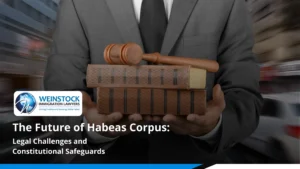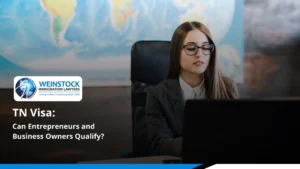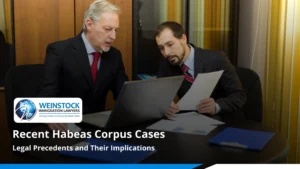COVID-19 IMMIGRATION PLANNING
The Coronavirus, COVID-19, has taken the entire world by utter surprise, and both governments, employers and employees are in new, never chartered territories. Our team at Weinstock Immigration Lawyers has kept our doors open and implemented a remote work rotating policy for our employees so we can continue to serve our clients. We will continue to update all of our clients about the COVID-19 updates as we learn new things.
The trouble is that our antiquated and rigid immigration system never planned for situations like the one we are facing with the Coronavirus. We are including as much practical information as we can; however it will not cover all cases. Please note that what is included below is informational only and does not constitute legal advice. If you have specific questions, please contact one of our attorneys or case managers.
As of March 19, 2020, USCIS has shut down many of its local offices. Most in-person interviews, fingerprint appointments, and naturalization ceremonies are being cancelled for the foreseeable future, at least until April 1, though we anticipate they may be postponed further. Even applications pending at the service centers will likely face major delays if all of USCIS shuts down or if employees are subject to remote or intermittent work.
The U.S. Department of State has shut down many U.S. consulates and embassies around the world for non-essential operations. This is resulting in cancellations of visa interviews for most non-immigrant visa and immigrant visa applications. Resumption of consulate operations in May is possible but not guaranteed and it may be delayed further. People who already have been interviewed and approved should receive their visas and passports by mail.
The President has issued a travel ban, prohibiting entry to the U.S. for travelers from China (since January 31, 2020) and Europe (since March 11), excluding U.S. citizens and other specific classes who are still allowed to enter the U.S. There are other restrictions in place for travel to and from Canada. These travel restrictions are updated daily and weekly, so please check the most up-to-date travel information directly on the government websites.
Employers who close down their offices and move their workforce to telecommuting must ensure they comply with certain immigration requirements, if they have H-1B employees or J-1 trainees. We will discuss both categories in more detail below.
H-1B Visas: Employers who have employees in H-1B visa status may face significant challenges. First, those employees may not be benched or furloughed for any period of time, notwithstanding the circumstances. Employers who place these employees on leave due to COVID-19 could be facing back-pay and other penalties from the Department of Labor. In order to maintain immigration compliance, if the employee will be working remotely, the employer may be required to file and post another LCA immediately to cover the employee’s home address, and in some cases, could be required to file an H-1B amendment petition. If this is not done timely, if could affect the employee’s H-1B visa status.
Prior to filing an H-1B application, an employer must list all work locations on the labor condition application (LCA). If there is a new work location that is not listed on the original LCA, a determination must be made as to whether a new LCA (and therefore an H-1B amendment application) must be filed. In general, if the home office (or secondary work location) is within the same Metropolitan Statistical Area (MSA) or within normal commuting distance (normally defined as within 50 miles of the employer’s offices), a new LCA may not be required. If the location is outside of these areas, then a new LCA and H-1B amendment may be required. There is an additional exemption for up to 30 days from having to file a new LCA governed by the short-term placement regulations. Please speak to one of our attorneys to find out if this situation applies in your case.
Employees in other visa statuses such as L visa may work from home temporarily without amendments, but employers should note that the Fraud Detection and National Security (FDNS) officers, may still conduct unannounced site visits to ensure compliance with the H-1B and L-1 visa regulations. If they find the offices closed, they may issue a Notice of Intent to Revoke (NOIR) for an approved L-1 or H-1B visa application. In order to prevent this a notice should be placed in a conspicuous place outside the business, clearly stating that the business is working remotely due to the COVID-19 situation and listing the contact information for the employer’s representative.
J-1 visas: Interns and trainees under the J-1 visa status may also face difficulties. The State Department issued a directive that all J-1 programs starting between March 11 – May 10 are being stopped for now due to the Coronavirus situation. We hope the restriction will be lifted on May 10th, but it is hard to say for now. Initial programs starting March, April or May will have to be cancelled altogether or defer the start date beyond the 60-day suspension period of May 10. It is also anticipated that additional backlogs for approval of new J-1 visas will be added as the consulates will be overloaded because of current closures. J-1 interns and trainees who were already in the U.S. participating in their programs prior to March 11 can continue with the program. If special business circumstances exist or the exchange individual is stuck abroad due to the visa being expired or the country subject to a travel ban, the program sponsor may be able to shorten the program.
F-1 students: Many universities are moving to virtual classes to deal with the Coronavirus. Some Designated School Officers (DSO’s) are requesting that their international students who are on F-1 visas return to their home countries to complete their classes. However, students should be wary about doing this and may want to consult an immigration attorney about their specific situations. We recommend for students to maintain their student status from within the U.S if possible, and be sure to timely file any required forms , such as requests for CPT (Curricular Practical Training) or OPT (Optional Practical Training) BEFORE they graduate and while they are still in the United States.
B-1 and B-2 visitors: Business visitors and tourists who are already in the United States but unable to depart can file extensions of stay of their nonimmigrant status, as long as the extension is filed before their authorized period of stay (as noted in the passport or on the I-94) expires. Unfortunately, people who are in the United States visiting on ESTA are not eligible to file extensions of stay in the U.S. and therefore must depart within the 90-day window. There is an exception to this that allows for an additional 30-day period for “satisfactory departure” on a showing of inability to travel under 8 CFR § 217.3(a) – this requires the applicant to submit a request with supporting evidence to the district director of a USCIS field office or by calling the USCIS 800 number. However, in reality, we aren’t sure whether this has been implemented and if so, at which airports or field offices.
Unfortunately, layoffs are becoming more realistic as employers are uncertain how long the situation will last and how it will affect them financially. If an employer terminates any employee who is on an employment-based visa the employee may immediately fall out of status because the employee’s status is tied to the visa and the employment. This also applies to any derivative family members. If an employer is laying off an H-1B visa worker, additional precautions need to be taken. First, the termination has to be bona-fide and in writing. Second, the employer must offer to pay for the employee’s return transportation home. Third, the employer is required to notify USCIS of the termination and withdraw the previously-approved H-1B petition, otherwise back wages may be assessed to the employer.
Before terminating an employee or taking any other drastic measures, please check with our immigration attorneys, who can advise you as to whether a less drastic measure could be done, such as moving these employees on visas to a part-time arrangement or other creative solutions, in order to prevent adverse consequences to the employees and the businesses. None of us knows when the Coronavirus situation will end, and we at Weinstock Immigration Lawyers are here to assist and keep you informed as much as possible during this crisis.
Related posts

The Future of Habeas Corpus: Legal Challenges and Constitutional Safeguards
Summary The blog explains how habeas corpus, a fundamental legal right enshrined in the U.S. Constitution, ensures protection against unlawful detention. It highlights the current

Can Entrepreneurs and Business Owners Qualify for a TN Visa?
Summary If you’re a Canadian or Mexican entrepreneur living in the U.S. or planning to launch a business here, you may be wondering: Can I

Recent Habeas Corpus Cases: Legal Precedents and Their Implications
Summary The article explains how recent habeas corpus cases, including Rivers v. Guerrero and W.M.M. v. Trump, have significant implications for the interpretation of the
